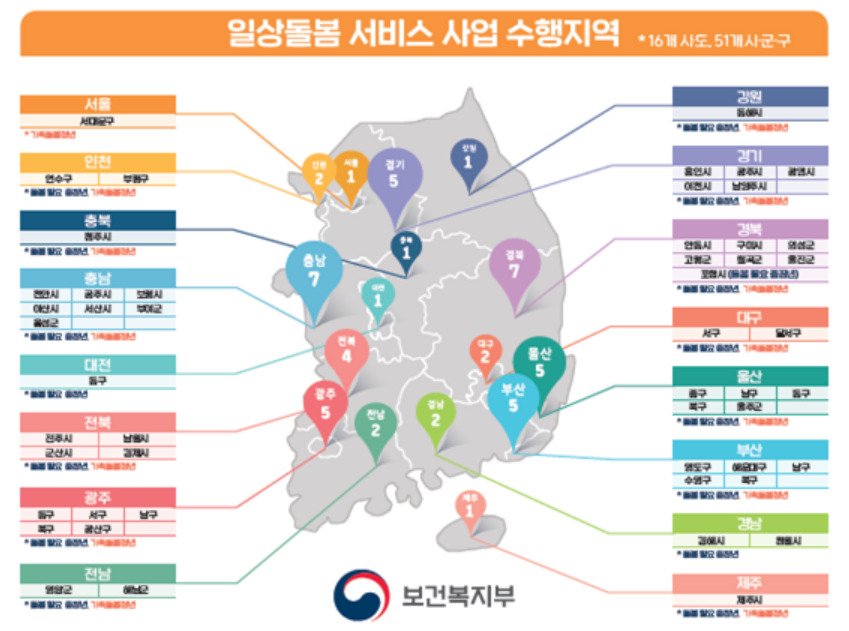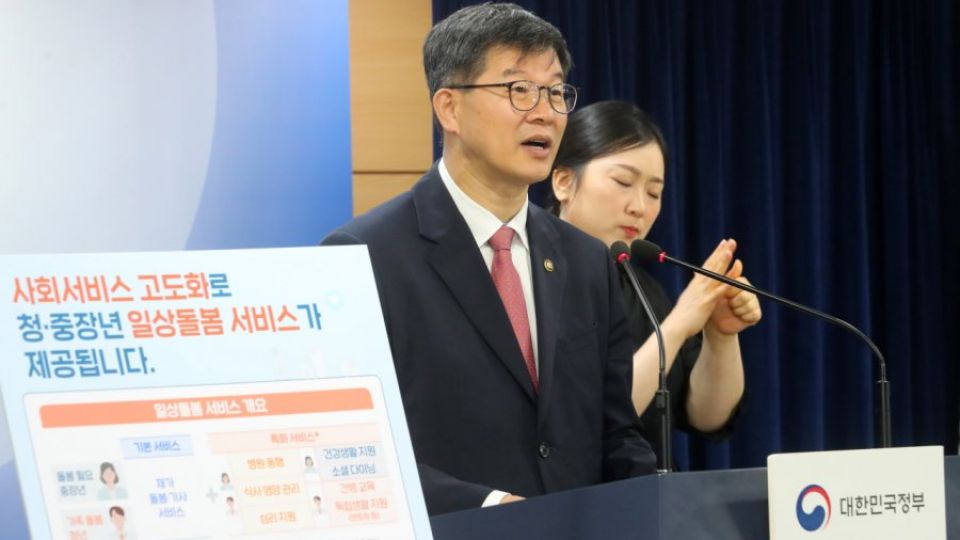August 15, 2023
SEOUL – Young and middle-aged people in the middle-income bracket will be newly eligible to receive state welfare services starting as early as this month upon registration and a small fee, officials said Monday.
Young people aged 13 to 34, who are caring for family members with severe diseases, disabilities or mental illnesses, or are supporting them financially, and middle-aged people aged 40 to 64, who are socially isolated due to illness or injury, will be new beneficiaries. Socially isolated people refer to people who are emotionally or physically isolated from the majority of society for at least six months. This includes those who have not worked and have rarely left home, according to the Welfare Ministry.
State welfare services including domiciliary care, hospital accompaniment, meal and nutrition management, mentoring, community care and psychological counseling services will be made available.
These services were previously provided only to the economically disadvantaged, but will be expanded to include mid-income earners who sign up and pay a small fee, the ministry said, bringing the total number of individuals eligible to 5,100.
The new policy reflects President Yoon Suk Yeol’s philosophy of state affairs on welfare services. Until now, the government has provided welfare services only to the marginalized with low income. However, the Yoon administration wants to expand the scope of welfare services to provide them for the entire population regardless of their income, the Welfare Ministry noted. The Yoon administration believes that through this, Korea will become an actual welfare state that implements universal welfare services.
The state services will be first available to those newly eligible living in 51 cities, counties, and districts and gradually expanded thereafter, according to the official. “The welfare service start time varies by local government, but it will start this month or next month.” Those who want to use those welfare services in 51 cities, counties, and districts can apply to the Administrative Welfare Center in their neighborhoods.
About 100 people are expected to be eligible for each city, county and district.
These services are available only to those who have Korean nationality, according to the ministry.

State welfare services for socially isolated people will be first provided to those newly eligible living in 51 cities, counties and districts, including Seodaemun-gu in Seoul, Yeonsu-gu and Bupyeong-gu in Incheon, and then become gradually expanded. (The Ministry of Health and Welfare)


